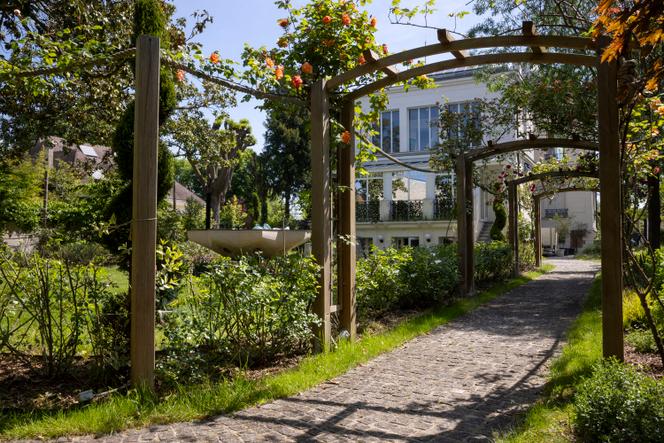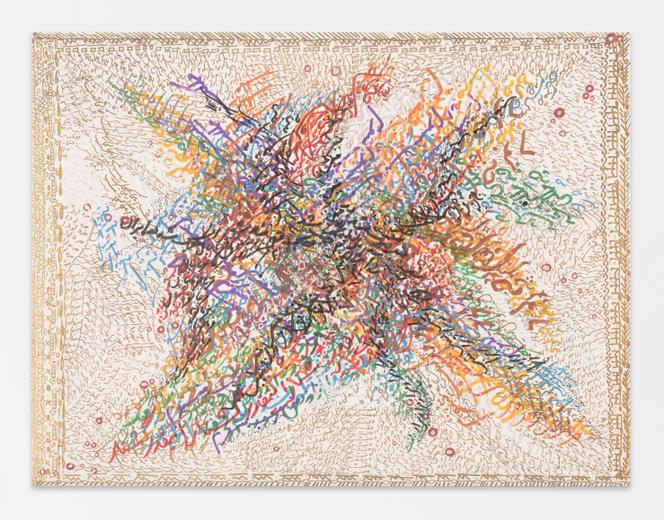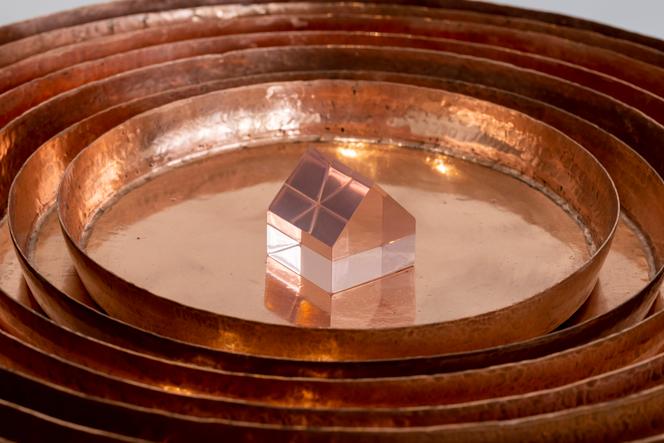


From the outside, this charming manor house on the banks of the Seine, protected by high gilded gates, looks like the other villas in this affluent enclave of Chatou, a western Parisian suburb. The courtyard offers a wonderful view of the Island of Impressionists that was spared from the real estate industry's voracious appetite. In the garden's maze of roses and jasmine, the soft splash of a fountain imbues the air with a gentle tranquility. A soothing melody fills the rooms. In the Museum of Sufi Art and Culture, which opened on September 28, everything was done to create an atmosphere of luxury, calm and delight.
Financed by the MTO Shahmaghsoudi School of Islamic Sufism, the venue showcases a reassuring environment for a tolerant brand of Islam. Finely crafted traveler's canes and beggars' begging dishes carved into coconuts bear witness to a mystical quest whose precepts are delivered in Persian by the hologram of a Sufi master. Even the tabarzins, a kind of axe, have been stripped of their warlike nature. "They're used to symbolically cut the ties with the material world and with our ego," explained Claire Bay, the museum's young Sufi president.
These ritual objects are paired with works by living artists with varying degrees of familiarity with mysticism. Some are Muslim, like Morocco's Younès Rahmoun and Iran's Monir Shahroudy Farmanfarmaian, others are not. "Sufism's aura can be felt in all of these creations, from which a thousand threads can be drawn beyond questions of religion and geography," asserted museum director Alexandra Baudelot. In her view, "what fuels the most toxic fantasies is a lack of understanding." Claire Bay concurred: "People hear music, they see calligraphy, they see works of art, and they think: 'Oh, so this is Islam?'"


Stéphanie Chazalon, who has been running the Institute of Islamic Cultures (IIC) in Paris' Goutte-d'Or district for the past eight years, is also striving to "move away from forced otherness," tragic faces and awkward innuendos. "Our role," she insisted, "is not to present a peaceful vision of religion – as if people needed to be reconciled with Islam, which is not the IIC's mission – but rather to tackle cultures that are misunderstood, stereotyped or exoticized, by supporting artists."
On the eve of the reopening of its building on rue Léon (Paris, 18th arrondissement) on October 5, this clarification is worth reminding. Chazalon is well aware of the tensions caused by the existence in the IIC's second building on rue Stephenson, of a prayer room run by an organization with ties to the Paris' Grand Mosque. When he inaugurated it in 2013, then-Paris mayor Bertrand Delanoë was quick to stress that the obstacles to its creation had been "immense, cultural, political, psychological, given the climate of racism and rejection of otherness."
You have 75.05% of this article left to read. The rest is for subscribers only.
